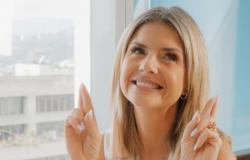Spain ages. We have known for years, but we repeat it as if it were a resigned mantra. The figures are cold: we have an inverted population pyramid, and the economic reasons – precariousness, unattainable housing, lack of conciliation – dissuade many young couples to take the step of having children. What we did not know so far is that, beyond the biological instinct or social commitment, raising could be an unexpected act of cerebral self -care.
In recent years, science has documented how gestation transforms the brain of women, reinforcing certain neuronal connections and brain structures that last beyond pregnancy. But the truly revealing thing is that these benefits do not stay there. According to recent international investigation published in the Proceedings of the National Academy of Sciencepaternity – intended as the process of raising, caring and being present in the life of children – also positively models the brain. And he does it in mothers, fathers and even in people who have raised children without having conceived them.
The study, which analyzed almost 40,000 people through advanced brain images and sophisticated statistical techniques, shows that the more children a person has raised, the greater the functional connectivity of their brain in key areas linked to the movement and the senses. The conclusion? That raising active, stimulates and strengthens neuronal circuits that, with age, tend to deteriorate. In other words: raising children could be a protection factor against brain aging.
-A mental training
The idea that taking care of wears out has been a dominant speech for decades. And not without reason: raising implies effort, sleepless nights, stress and physical tiredness. But now we know that, in parallel, there is also a mental “training” that leaves a positive mark. The parent’s brain adapts, expands and strengthens before the constant demand to meet, anticipate, solve and, above all, connect emotionally.
This finding cannot and should not replace the necessary social and economic policies that facilitate motherhood and paternity. But it does add a powerful nuance to the debate on birth: raising not only contributes to the welfare of children and the support of the system, but also to the mental well -being of adults. In a society that seeks longevity and fears dementia, ignoring this dimension would be a mistake.
Perhaps, deep down, nature knows more than we believe. Raising can be exhausting, yes. But it is also a deep way – and until now little recognized – to stay young inside. If we want to fight aging, perhaps not only have to look towards medical innovations or miraculous supplements, but also towards something as human as forming a family. @Mundiario






